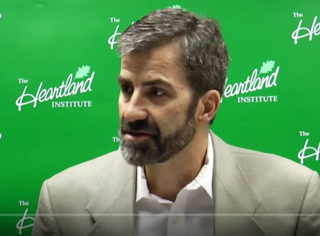A Quote by Mark Powell
Scientists blame the audience for being too stupid, shallow, or lazy to understand. There has been a fascinating debate in the blogosphere lately about communicating science to the public, and it's clear that most scientists just don't get it. They can't be bothered to talk to real people. Nobody will care about your issues if the price they have to pay is listening to a long lecture from Morton the science bug.
Related Quotes
I don't think any administration, when they come in, thinks that their job is to tell the scientists what the science looks like or to be quiet about the science. Scientists need to remain true and not allow science to be politicized. Scientists are not politicians, and no politician should consider themselves to be a scientist.
Its a consequence of the experience of science. As you learn more and more about the universe, you find you can understand more and more without any reference to supernatural intervention, so you lose interest in that possibility. Most scientists I know dont care enough about religion even to call themselves atheists. And that, I think, is one of the great things about science-that it has made it possible for people not to be religious.
Historians of a generation ago were often shocked by the violence with which scientists rejected the history of their own subject as irrelevant; they could not understand how the members of any academic profession could fail to be intrigued by the study of their own cultural heritage. What these historians did not grasp was that scientists will welcome the history of science only when it has been demonstrated that this discipline can add to our understanding of science itself and thus help to produce, in some sense, better scientists.
When we just saw that man, I think it was Mr. Myers, talking about how great scientists were, I was thinking to myself the last time any of my relatives saw scientists telling them what to do they were telling them to go to the showers to get gassed. That was horrifying beyond words, and that's where science - in my opinion, this is just an opinion - that's where science leads you.
How could two teams of scientists come to such obviously contradictory conclusions on seemingly every point that matters in the debate over global warming? There are many reasons why scientists disagree, the subject, by the way, of an excellent book a couple years ago titled Wrong by David H. Freedman. A big reason is IPCC is producing what academics call "post-normal science" while NIPCC is producing old-fashioned "real science.
The whole point of science is that most of it is uncertain. That's why science is exciting--because we don't know. Science is all about things we don't understand. The public, of course, imagines science is just a set of facts. But it's not. Science is a process of exploring, which is always partial. We explore, and we find out things that we understand. We find out things we thought we understood were wrong. That's how it makes progress.



































